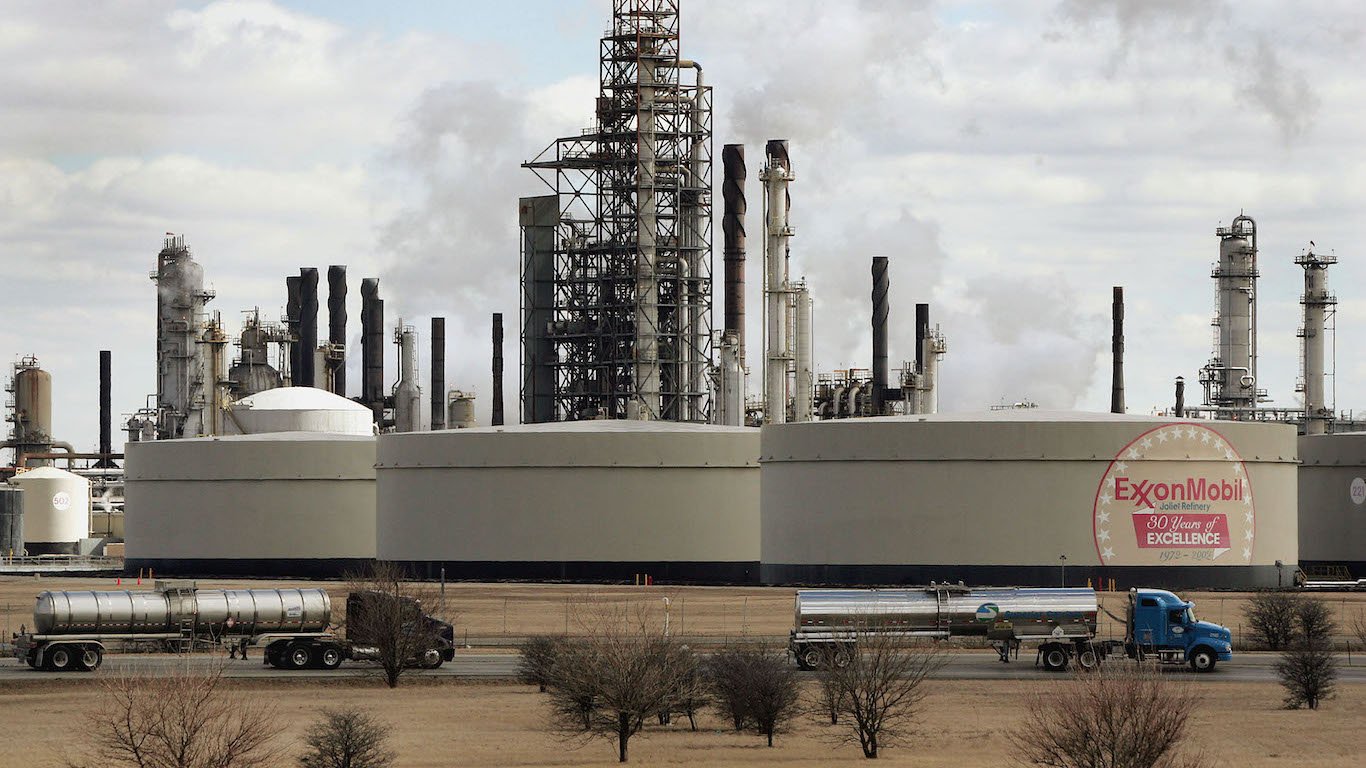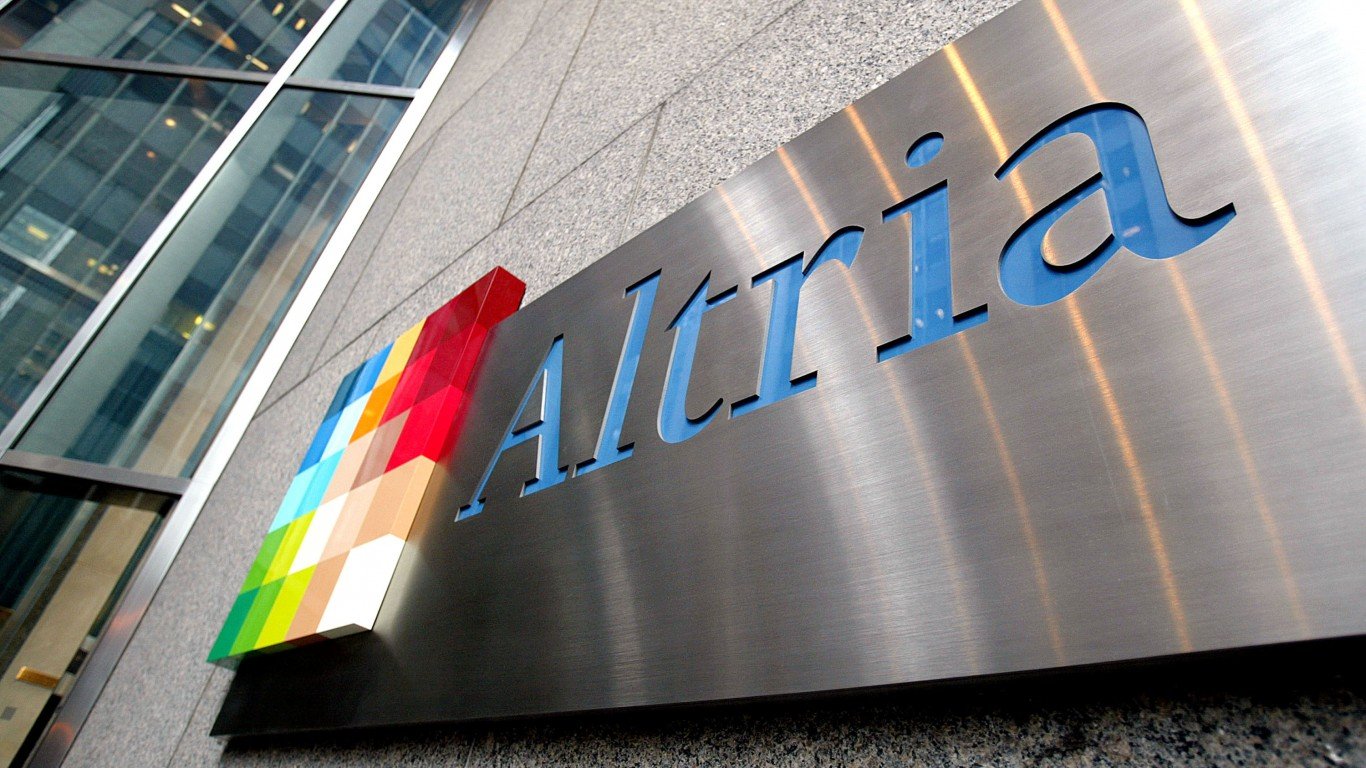

For well over a year, we have covered the energy analyst research team at Goldman Sachs as they continued to make the case for higher oil prices. While many on Wall Street shrugged, they held their ground. The one handcuff the United States could have had on Russia was energy, but the Biden administration discouraged fossil fuel production by shutting down the Keystone pipeline and not allowing permits to drill on federal land and in the Gulf of Mexico. So, one sanction they don’t have in their diplomatic quiver is halting Russian energy exports to Europe. Now, with the dogs of war on the screen near term, the biggest issue may be production for the longer term.
Due to the administration’s policies, many of the top energy companies have focused on shareholder returns, like dividends share buybacks, and on free cash flow. With West Texas Intermediate crude over $90 a barrel, though, you can bet that some wells are being fired back up, but it will be nowhere near the expected demand going forward for oil and especially for natural gas and liquefied natural gas.
We screened the Goldman Sachs energy research universe looking for companies that are rated Buy and pay solid and big dependable dividends. We found five top ideas that still make sense for growth and income investors. It is important to remember that no single analyst report should be used as a sole basis for any buying or selling decisions.
BP
This is one of the premier European integrated oil giants, and Goldman Sachs has it on the firm’s Conviction List of top stock picks. BP PLC (NYSE: BP) engages in the energy business worldwide. It produces and trades in natural gas; offers biofuels; operates onshore and offshore wind power and solar power generating facilities; and provides de-carbonization solutions and services, such as hydrogen and carbon capture, usage and storage.
The company is also involved in the convenience and mobility business, which manages the sale of fuels to wholesale and retail customers, convenience products, aviation fuels, and Castrol lubricants. It is involved in refining, supply and trading of oil products, as well as operation of electric vehicle charging facilities. In addition, it produces and refines oil and gas, and it invests in upstream, downstream and alternative energy companies, as well as in advanced mobility, bio and low carbon products, carbon management, digital transformation and power and storage areas.
Shareholders receive a 4.22% yield. The Goldman Sachs price target for U.S.-traded shares of BP stock is $50, well above the $37.72 consensus target. The final trade Friday was reported at $30.73.
Enterprise Products Partners
This is the largest publicly traded energy partnership and a leading North American provider of midstream energy services to producers and consumers. Enterprise Products Partners L.P. (NYSE: EPD) services include gathering, processing, transportation and storage of natural gas, natural gas liquid (NGL) fractionation, import and export terminaling, and offshore production platform services.
One reason many analysts may have a liking for the stock might be its distribution coverage ratio. This ratio is well above 1 times, making it relatively less risky among the master limited partnerships.
Enterprise Products Partners stock investors receive a 7.82% distribution. Goldman Sachs has a $30 price target, and the consensus target is $28.77. Shares closed on Friday at $23.80.
Exxon Mobil
Despite the recent rally in oil, this mega-cap energy leader still trades below levels printed three years ago and still offers investors an excellent entry point. Exxon Mobil Corp. (NYSE: XOM) is the world’s largest international integrated oil and gas company. It explores for and produces crude oil and natural gas in the United States, Canada, South America, Europe, Africa and elsewhere.
Exxon also manufactures and markets commodity petrochemicals, including olefins, aromatics, polyethylene and polypropylene plastics, and specialty products, and it transports and sells crude oil, natural gas and petroleum products.
Goldman Sachs said this after the strong fourth-quarter results were posted:
We expect the company to be a key beneficiary in this higher oil price environment, and we remain positive around the company’s sharp positive inflection in capital allocation strategy, Upstream portfolio, and leverage to a further demand recovery, with ExxonMobil offering greater Downstream/Chemicals exposure relative to peers.
The company pays investors a 4.52% dividend, which will continue to be defended. The $84 Goldman Sachs target price was raised to $88. The consensus is $81.36 and Exxon Mobil stock closed trading on Friday at $77.84.
MPLX
This is the top holding for the Alerian MLP energy exchange-traded fund. MPLX L.P. (NYSE: MPLX) is primarily engaged in crude oil and refined products transportation and terminaling in the U.S. Midwest and Gulf Coast regions, as well as natural gas gathering and processing in the northeast from its prior acquisition of MarkWest Energy in 2015. MPLX was formed by independent U.S. refiner Marathon Petroleum.
The company’s assets include a network of crude oil and refined product pipelines; an inland marine business; light-product terminals; storage caverns; refinery tanks, docks, loading racks and associated piping; and crude and light-product marine terminals. It also owns crude oil and natural gas gathering systems and pipelines, as well as natural gas and NGL processing and fractionation facilities in key U.S. supply basins.
Investors receive an 8.31% distribution. Goldman Sachs has set its price target at $37. That compares with a $36.56 consensus target for MPLX stock, and Friday’s closing price of $31.67.
Phillips 66
This extremely diversified energy company has a long and successful operating history and is another Goldman Sachs Conviction List member. Phillips 66 (NYSE: PSX) operates through four segments: Midstream, Chemicals, Refining, and Marketing and Specialties. The company holds many of these assets within its master limited partnership, Phillips 66 Partners.
The company benefits from the tax-advantaged structure while still operating a more diversified operating business that also contains many assets that are not ideal master limited partnership assets, such as its fast-growing chemical manufacturing business and its super-profitable refined products marketing business.
After stellar results for the fourth quarter were posted, the analysts said this:
Phillips 66 remains our top idea within our Refining coverage, where we continue to see headroom for incremental capital returns this year, are constructive on a positive rate of change at Refining in 2022, and continue to see attractive non-refining value in Midstream, Marketing, and Chemicals.
Investors receive a 4.35% dividend. The Phillips 66 target price at Goldman Sachs is $95. The consensus target is higher at $99.71, and shares closed at $84.69 on Friday.
These are two leading mega-cap integrated energy companies (one based in the United States and one in Europe), two of the best-performing energy master limited partnerships and the Goldman Sachs top refining idea. All pay big and dependable dividends and distributions, and all look like they can continue to ride the increase in oil pricing this year and perhaps beyond.
Essential Tips for Investing: Sponsored
A financial advisor can help you understand the advantages and disadvantages of investment properties. Finding a qualified financial advisor doesn’t have to be hard. SmartAsset’s free tool matches you with up to three financial advisors who serve your area, and you can interview your advisor matches at no cost to decide which one is right for you. If you’re ready to find an advisor who can help you achieve your financial goals, get started now.
Investing in real estate can diversify your portfolio. But expanding your horizons may add additional costs. If you’re an investor looking to minimize expenses, consider checking out online brokerages. They often offer low investment fees, helping you maximize your profit.
Thank you for reading! Have some feedback for us?
Contact the 24/7 Wall St. editorial team.
 24/7 Wall St.
24/7 Wall St. 24/7 Wall St.
24/7 Wall St.


